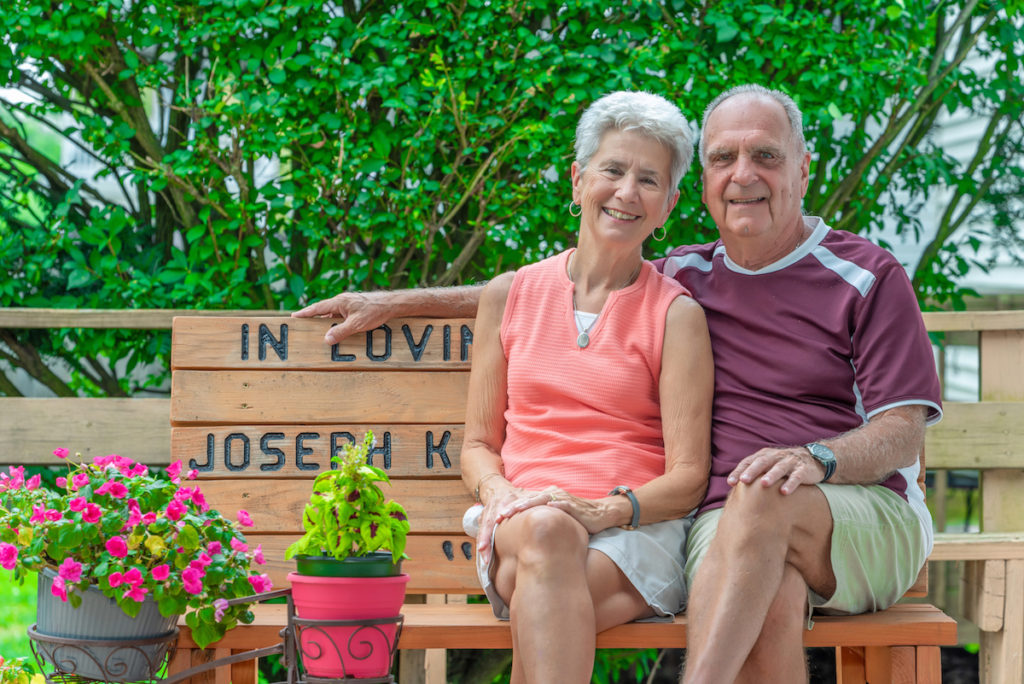ERIE, Pa. (CNS) — Three years ago, Betty Koscinski, 75, lost her son to suicide. She now spends most of her time and energy spreading hope and educating others about mental illness.

“Not many people at my age start out on a new path,” said Koscinski, a member of Notre Dame Parish in Hermitage, Pennsylvania.
Before her son Joe’s death in 2016 at age 41, she already had been working for 10 years as a behavioral specialist consultant, a mobile therapist and a program integrity consultant. She gave presentations on stress management, eating disorders, depression and suicide prevention.
Earlier, she taught theology and physical education for 19 years at Kennedy Catholic High School in Hermitage.
Nothing in her professional background prepared her for the shock of losing her own son. But it did, however, provide the resources and skills necessary to begin sharing her grief journey in new ways.
Since Joe’s death, she developed a 90-minute seminar, titled “Stop the Stigma.” She weaves together her son’s day-to-day struggles up to his tragic death. She also discusses the myths and misunderstandings about mental illness, as well as important information about suicide prevention.
“My hope is to save lives through education,” she told Faith magazine of the Diocese of Erie.
Additionally, Koscinski is a speaker for Crisis Intervention Team training for law enforcement. The weeklong program is designed to guide interactions between police officers and those living with mental illness.
In November, she spoke for the second time at the Crisis Intervention Association of Pennsylvania’s state conference in Nemacolin Woodlands Resort in Farmington, Pennsylvania.
She also is a trained facilitator for a program called “Talk Saves Lives,” endorsed by the American Foundation of Suicide Prevention. She discusses suicide, especially as it pertains to youth.
Additionally, she has given related presentations to several public high schools in two Pennsylvania counties, and at Kennedy Catholic. She’s hoping to offer her expertise and personal insight to other Catholic schools.


“I want people to understand that those who suffer from mental illness are not crazy. They are just people like you and me who got dealt a very unfair card in life, a chemical imbalance in their brain which affects their thinking, their behaviors and the choices they make,” Koscinski said. “I want to educate people about the signs to look for when a loved one might be contemplating suicide.”
According to statistics from the World Health Organization; Suicide Awareness Voices of Education, or SAVE; and the Centers for Disease Control:
- Nearly 800,000 people die by suicide in the world each year, which is roughly one death every 40 seconds.
- Suicide is the second leading cause of death among individuals between ages 10 and 34. It is the fourth leading cause of death among individuals between ages of 35 and 54.
- Depression is the leading cause of disability worldwide. The highest suicide rates in the U.S. are among whites, American Indians and Alaska Natives.
At one of her presentations to law enforcement, a burly police officer came up to Koscinski and gave her a huge hug.
“He held me in his arms and thanked me,” Koscinski said. “He said he would never look at someone with mental illness in the same way again.”
Her three years of grief, she said, have turned to light.
“My life has meaning and purpose again,” she said. “It’s so gratifying for me at the age of 75 to know that I am making a difference, giving people a better understanding of mental illness, and offering hope to those who are struggling.”
— By Mary Solberg, Catholic News Service. Solberg is editor of Faith, the magazine of the Diocese of Erie.





